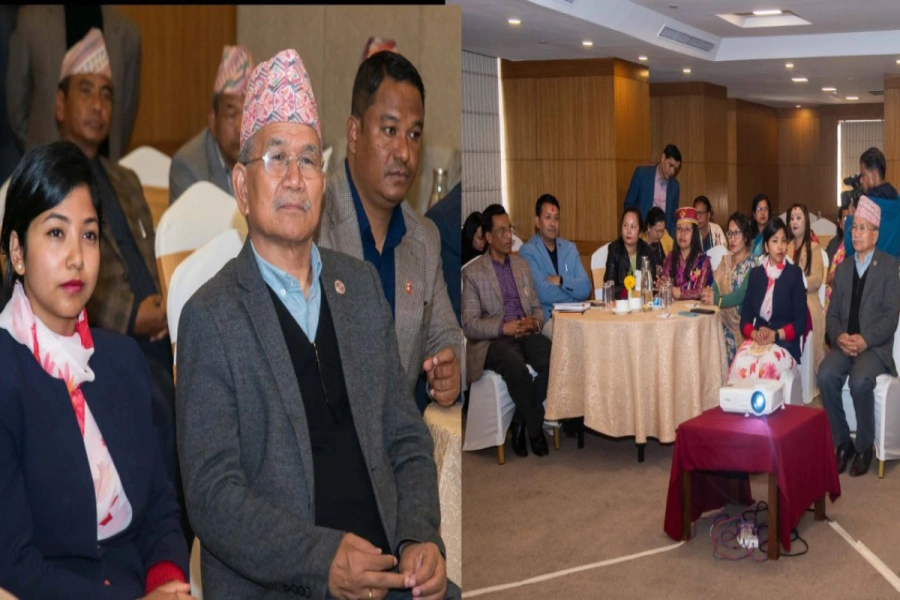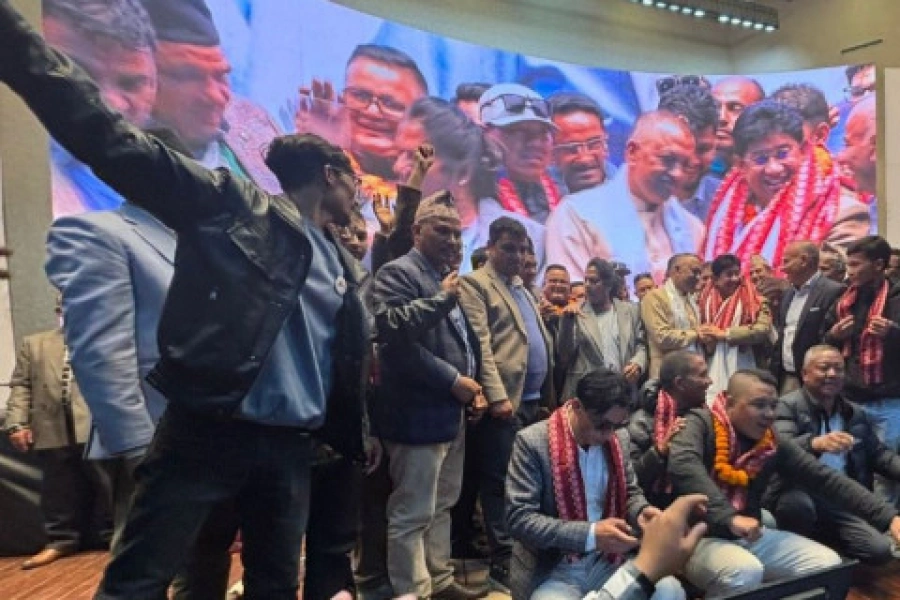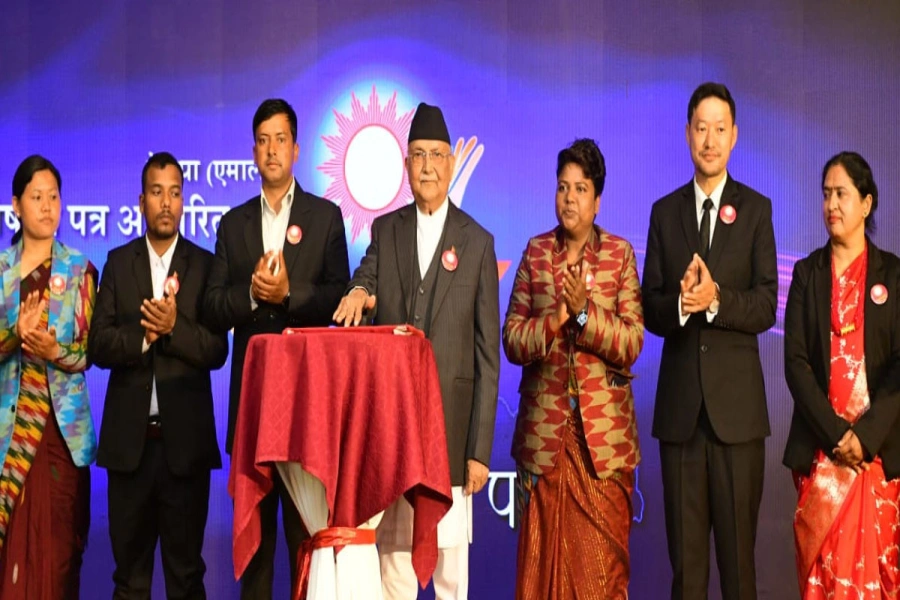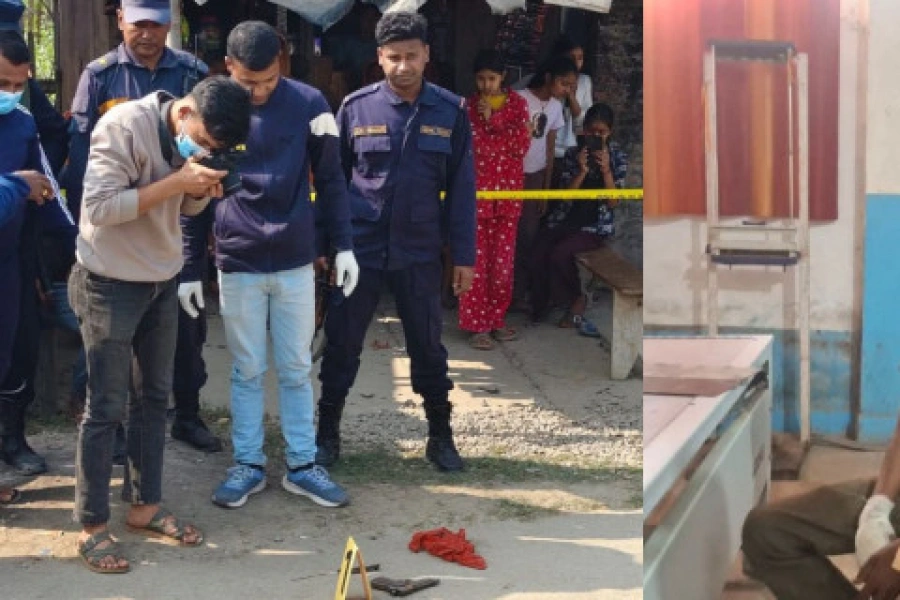This is an opportune time to change the mindset, think of a big picture and chart a long-term vision for further cementing the close and multifaceted relations between India and Nepal
The Indian External Affairs Minister Subramanyam Jaishankar is arriving in Kathmandu today to co-chair the fifth meeting of the Nepal-India Joint Commission (JC) that was established in 1987. Welcome to Nepal! According to a press release issued by Ministry of Foreign Affairs of Nepal, the JC will review overall state of bilateral relations, and various areas of cooperation such as connectivity and economic partnership, trade and transit, water resource sectors, culture, education and other matters of mutual interests. JC was revived after a gap of over two decades in 2014 and the third meeting was held in Kathmandu in July 2014.
On August 14, speaking at an interaction on ‘Dimensions of Nepal-India Relations’ in Kathmandu, Foreign Minister Pradeep Gyawali said Nepal and India should focus on new projects, dropping joint projects that have not gathered pace ever after a long time. He made it clear: “if any projects are not in a situation to move forward, let’s leave them.” Pancheshwar Multipurpose Project, one of the “major game-changing projects,” has been in limbo for decades. Projects agreed during the visit of Indian Prime Minister Narendra Modi in 2014 are yet to make preparatory works for their implementation.
The destinies of two countries are intertwined, and so are the interests. No two sovereign and independent countries interact so comprehensively both at the government-to-government and people-to-people levels as Nepal and India do. Even democracy and freedom have their congenital relationships in Nepal and India. A large section of the Nepali youth under the leadership of BP Koirala participated in the Indian freedom struggle along with Indian leaders. Therefore, “the Independence of India,” as BP said “is, as dear to me as to my Indian friends.” India has shown its goodwill and support to all democratic movements in Nepal starting from 1950. This has added a unique and extraordinary dimension to people-to-people relations.
Nepal Trust Former Joint Secretary Karki Arrested

Regular exchanges of visits including at the levels of head of state/government have added weight to an improvement of mutual trust, introduced new impetus, new direction and new dynamism. The last such visit was by Prime Minister Narendra Modi to Nepal in August 2014. In an address to the Constituent Assembly which was engaged in the constitution writing after seven decades of arduous democratic struggles in Nepal, he said: “We have always believed that it is not our work to interfere in what you do but to support you in the path you decide to take,” adding “How can India be happy if Nepal is unhappy?” One short speech touched the hearts and minds of all Nepalis, erased the long-standing misperceptions about India, and laid “the foundation for new relationship” between the two countries. India has been Nepal’s early and reliable development partner in economic transformation. It has been Nepal’s first friend in need in times of difficulties, as manifested in the wake of devastating earthquake in 2015.
Spoiling factors
However, the zeal, spirit and trust injected by the visit fast evaporated. For example, India’s disagreement over Nepal’s promulgation of an inclusive democratic constitution in September 2015, and the economic blockade that followed remain baffling and incomprehensible to this day. This blockade caused the scarcity of public goods during the biggest Hindu festivals—Dashain, Deepawali and Chhath. This action shattered the trust resonated in the eloquent expression of Prime Minister Modi.
While replying on the attention motion on “situation in Nepal and State of Indo-Nepal relation” on December 3, 2015, the then External Affairs Minister told the upper house of Indian Parliament, that Nepali leaders who visited India from January to June 2015, held consultations with Indian leaders. “Advice” was given to them about the constitution to be promulgated. What “advice” they were given has never been revealed. The doublespeak of these senior leaders in the government and political parties saying one thing in private conversations and the other in public has done a great damage to the credibility of the nation.
Two high-level Indian foreign service officers and ambassadors to Nepal in different times have recorded their impressions of Nepali leaders. Maharajkrishna Rasgotra quotes Prime Minister Indira Gandhi telling him: “Nepal’s rulers cannot be trusted. They say one thing and do the opposite. I do not like that. They are not our friends. ….. Be firm in dealing with them.” Shyam Saran finds Nepal’s “political leaders were nearly schizophrenic in their dealings with India, seeking favors and political intervention on their behalf in private but criticizing India for meddling in their affairs in public.” It is perhaps for these reasons alone that Nepal’s leaders prefer meetings with Indian leaders without aides or government representatives. Nepal’s Prime Minister who visited India in February 2016 found no one trustworthy from 48 delegates accompanying him for inclusion in his one-on-one talk with Indian Prime Minister.
Eminent Persons Group (EPG) was formed by the two governments to look into the totality of Nepal-India relations including to review and update the Treaty of Peace and Friendship (1950) and other bilateral agreements. The group has completed its report and is waiting for submission to Indian PM first to be followed to Nepal’s PM. Putting that report into implementation would enhance the much-needed trust in bilateral relations.
Trust is the key
Trust is a vital instrument of statecraft and a two-way traffic. It is a basic infrastructure to erect an edifice of mutually beneficial ties. Repairing trust is a long-term task and requires narratives followed by concrete actions. Face the reality, trust is at low ebb. The JC meeting is an excellent opportunity to start the process of improving the scale of trust. Trust grows when cooperative actions produce positive outcomes on the ground. As democracy remains the core commitment of the two countries, there is no reason why trust cannot be improved at various levels putting people’s welfare, security and dignity at the center of priorities.
This is an opportune time to change the mindset, think of a big picture and chart a long-term vision for further cementing the close and multifaceted relations. It is time to focus on what matters the most. Tendency to include everything and do nothing loses the currency of trust. Prioritizing everything is no priority at all. The call of the time is to differentiate vital interests from vested interests. The timely implementation of the past treaties and agreements and completion of the older projects funded by India need to be taken up firmly and pragmatically in seeking to deepening and widening ancient ties.
George Orwell once said: “we have now sunk to a depth at which the restatement of the obvious is the first duty of intelligent men.” If the strong and stable governments do not do it, who will? Initiative from India would go a long way. Nepali leaders should rise above party and petty interests. Put trust in place, everything will naturally follow.
dineshbhattarai@tuicms.edu.np







































